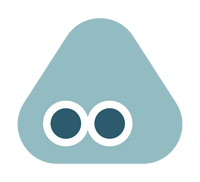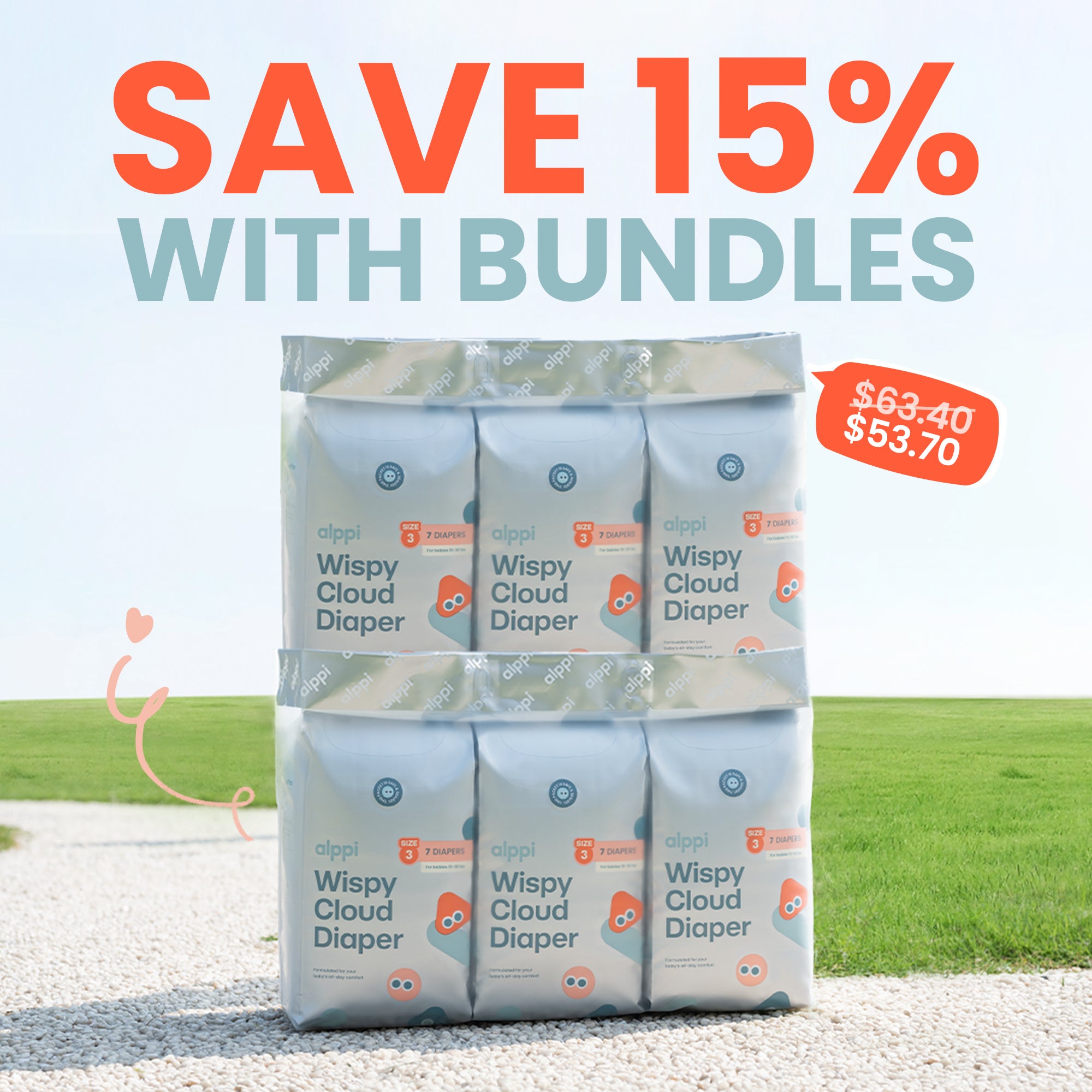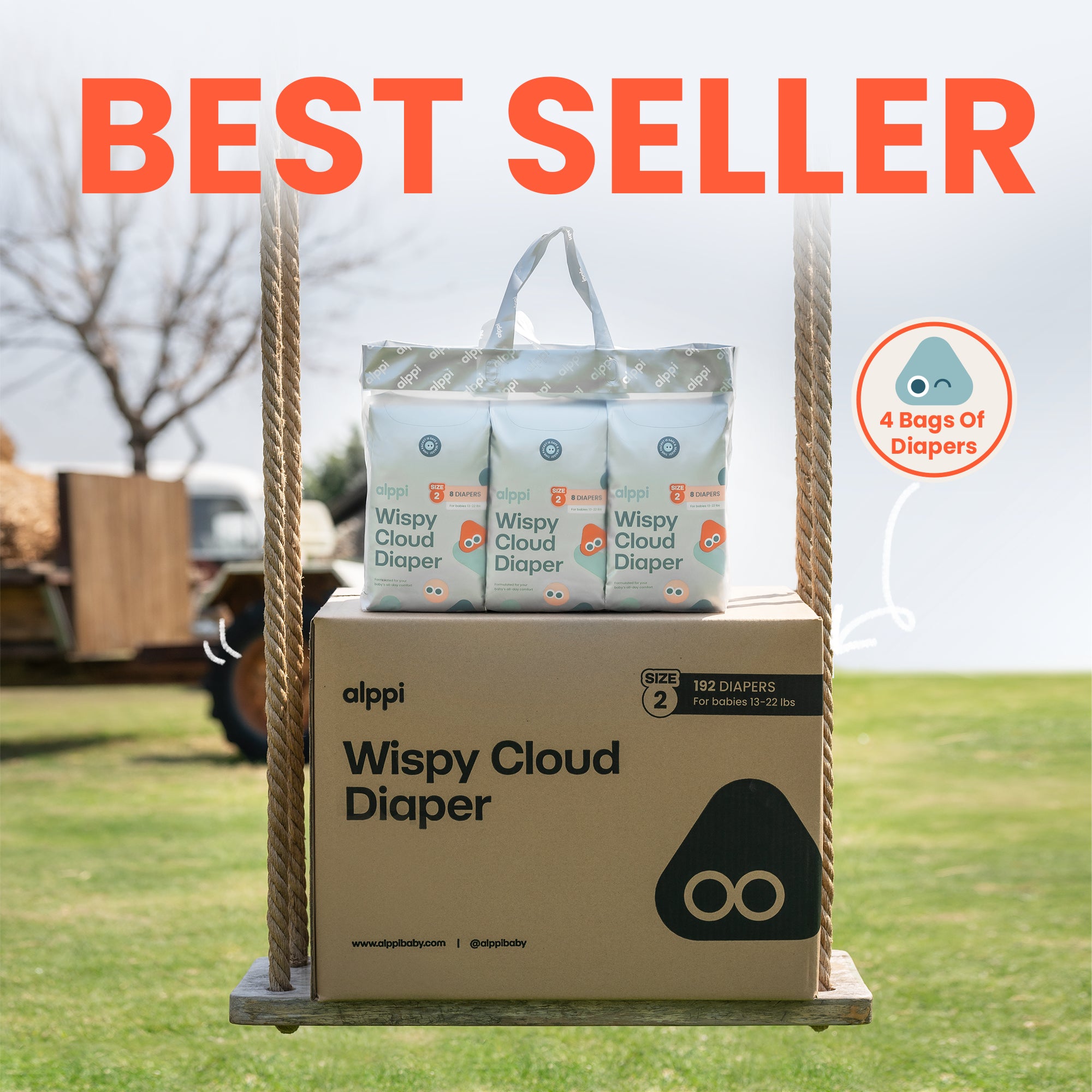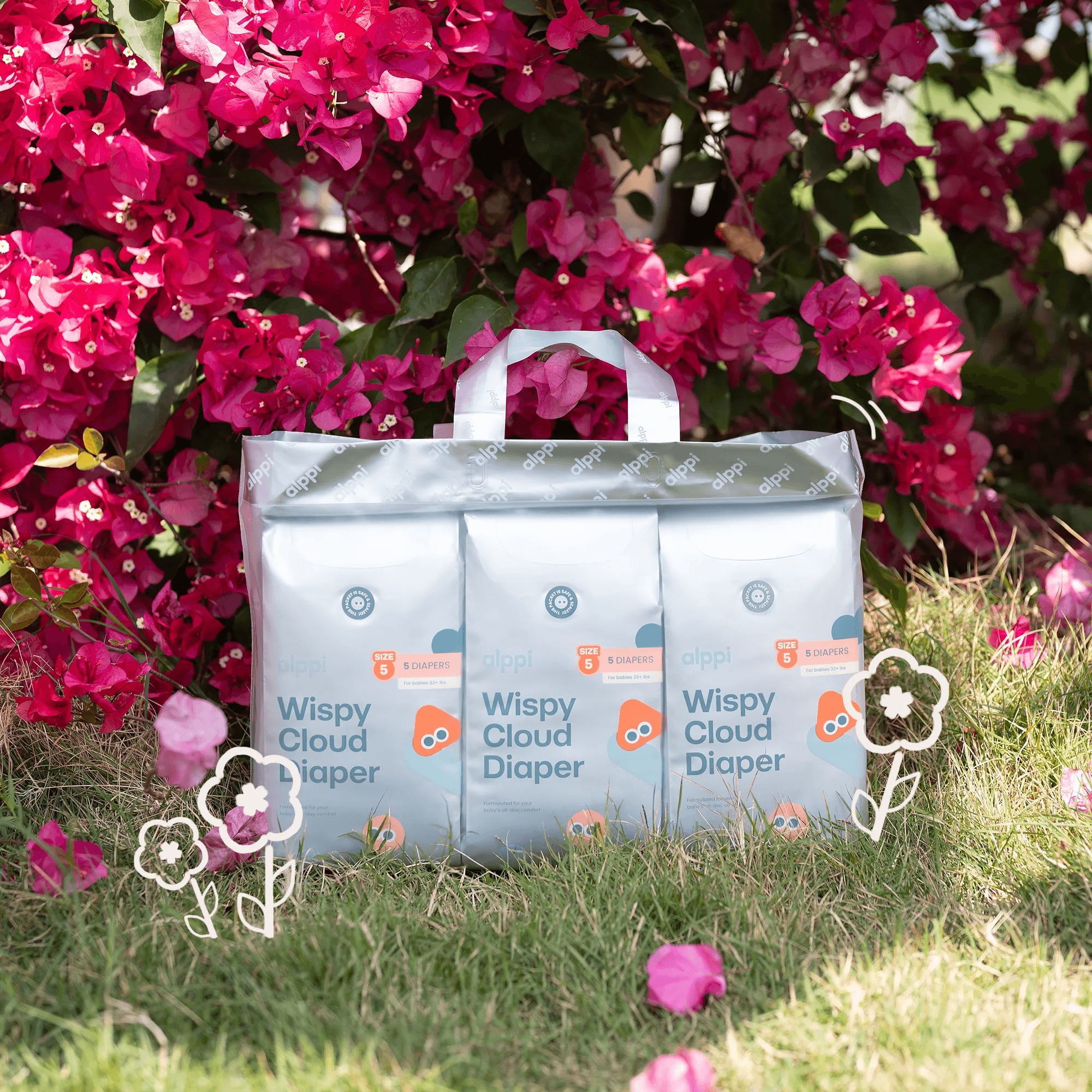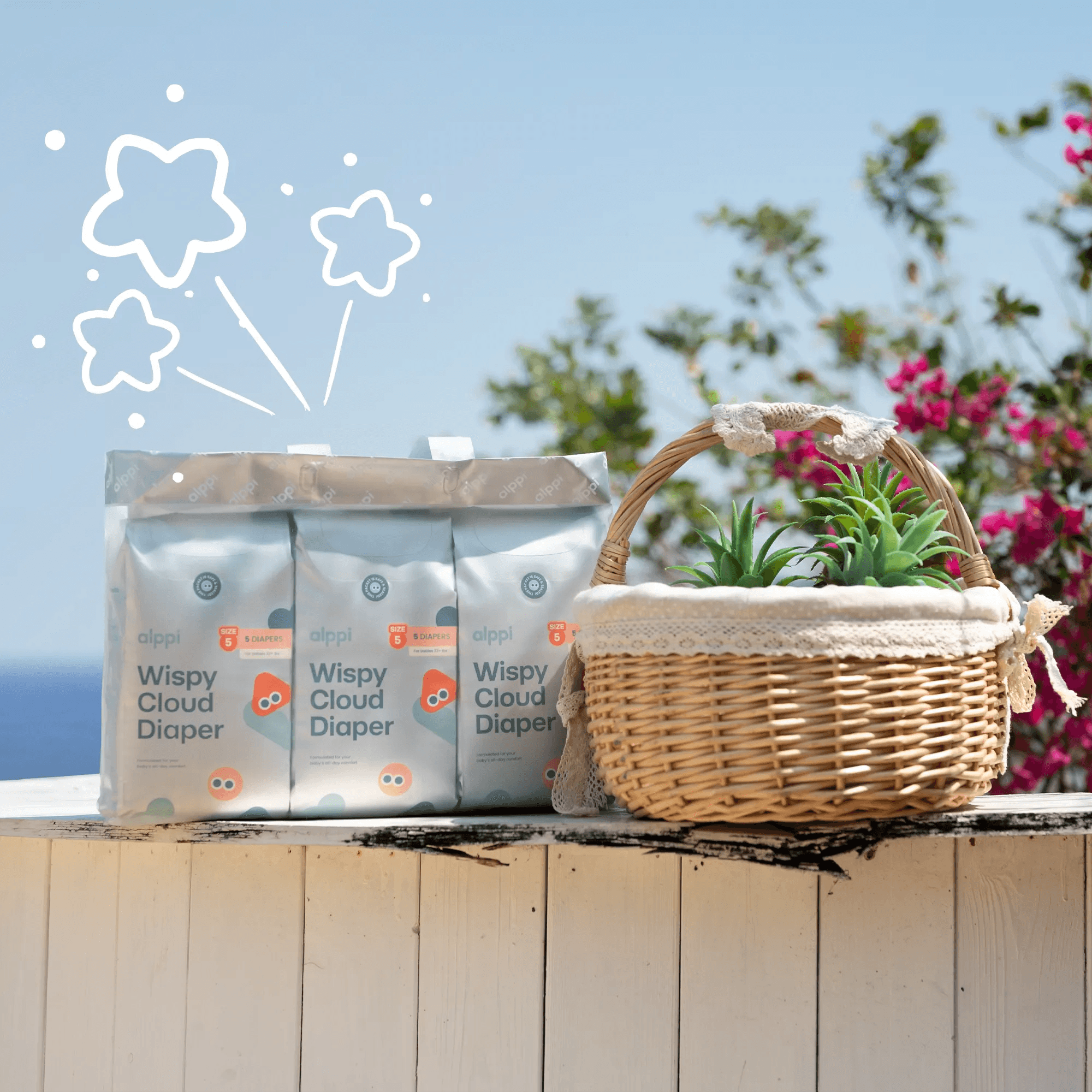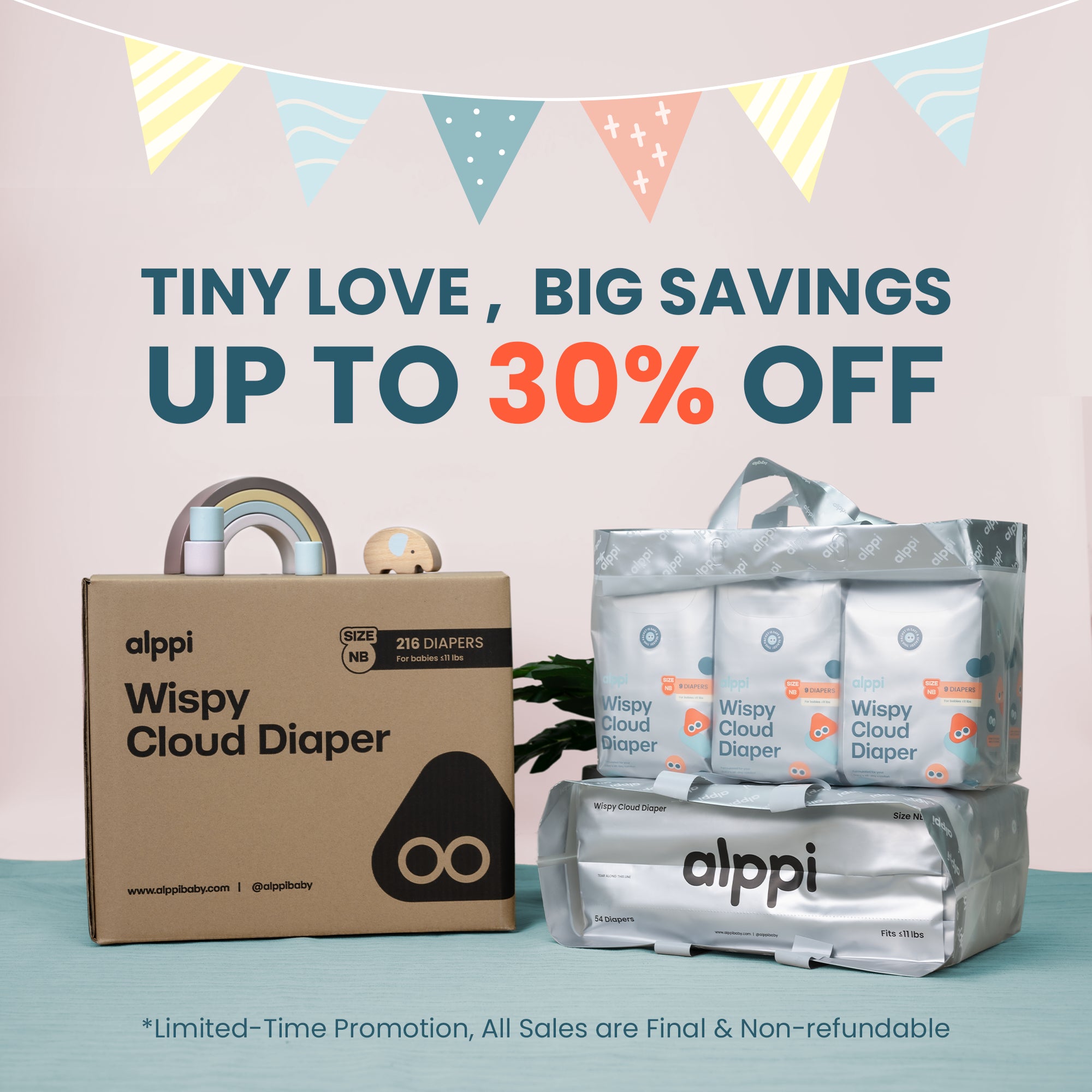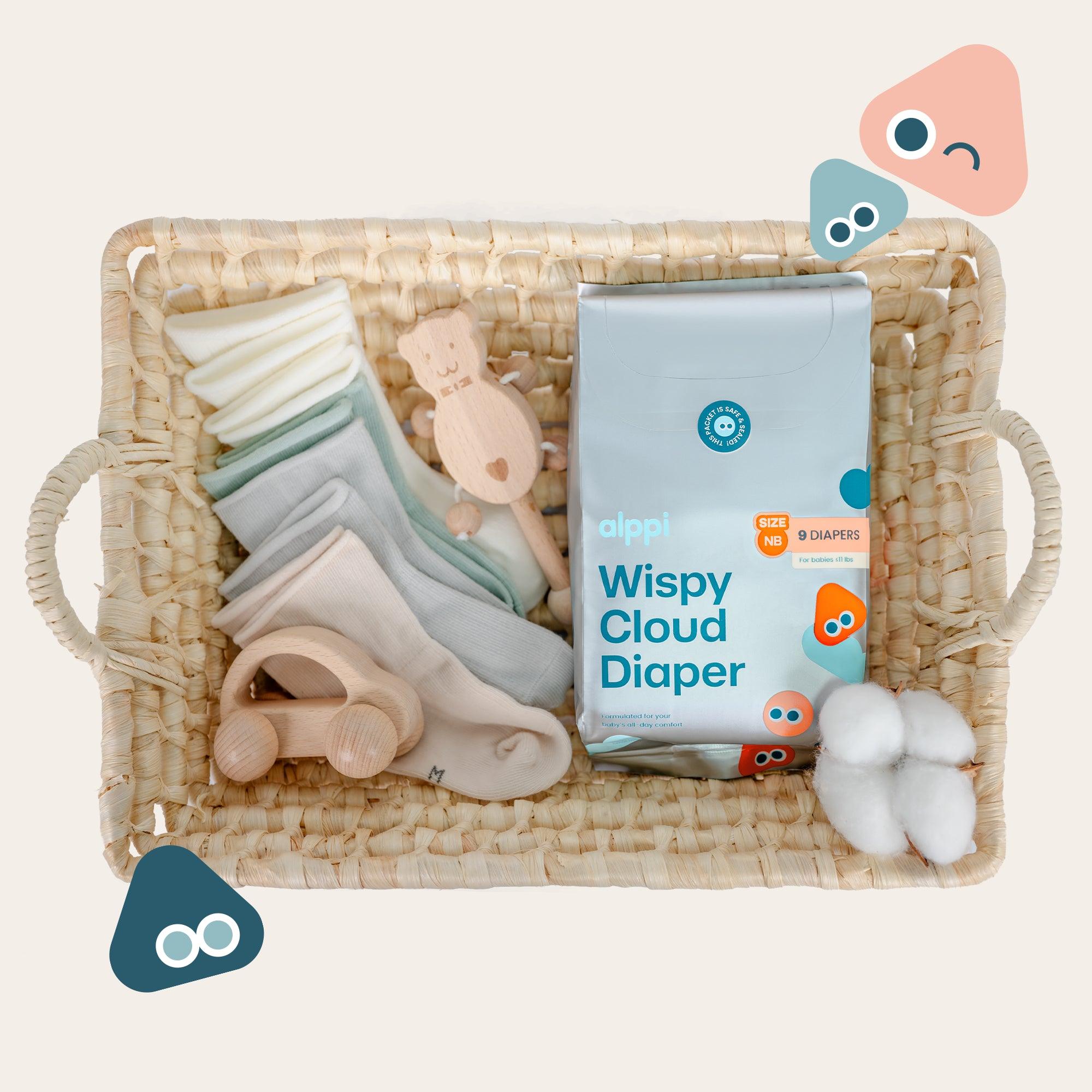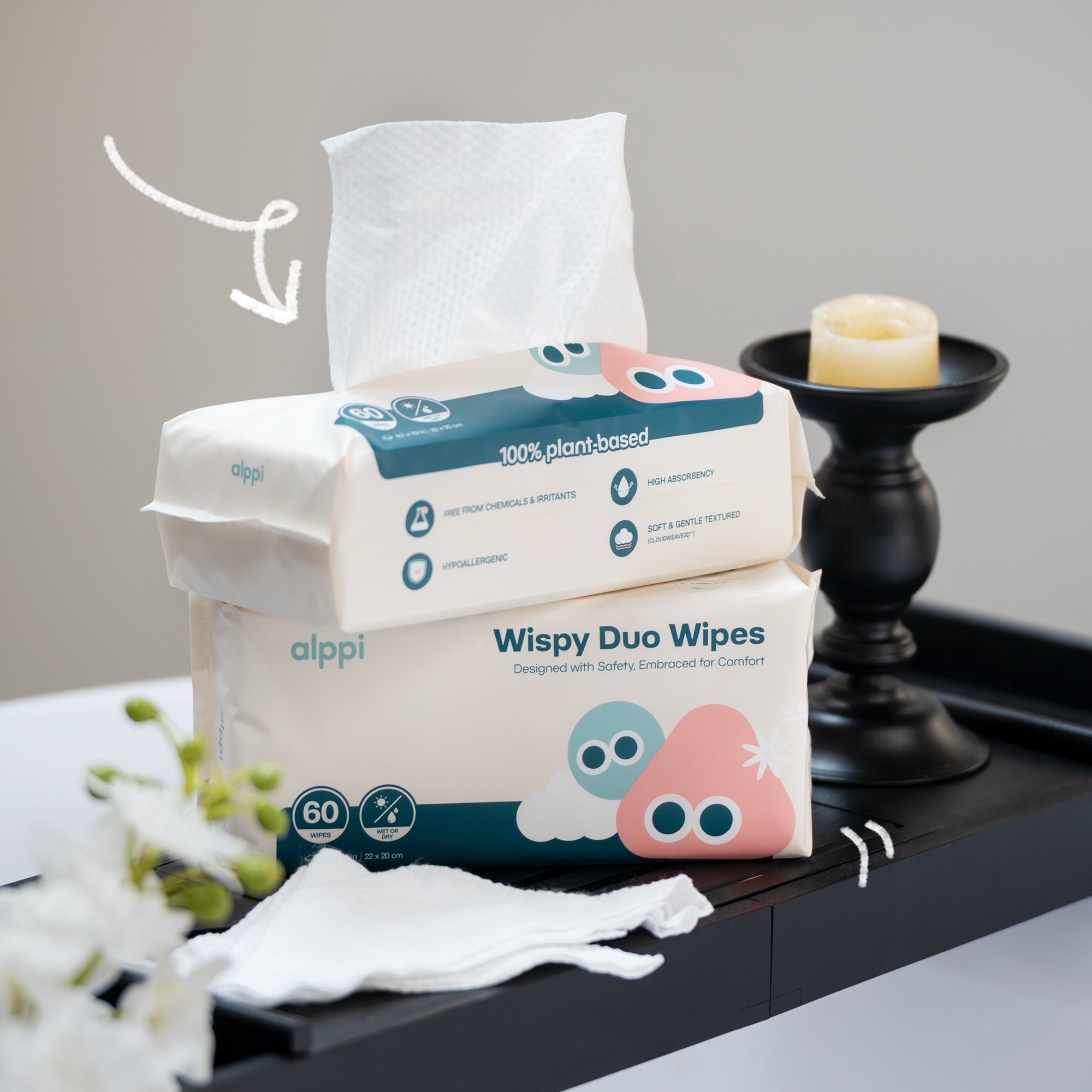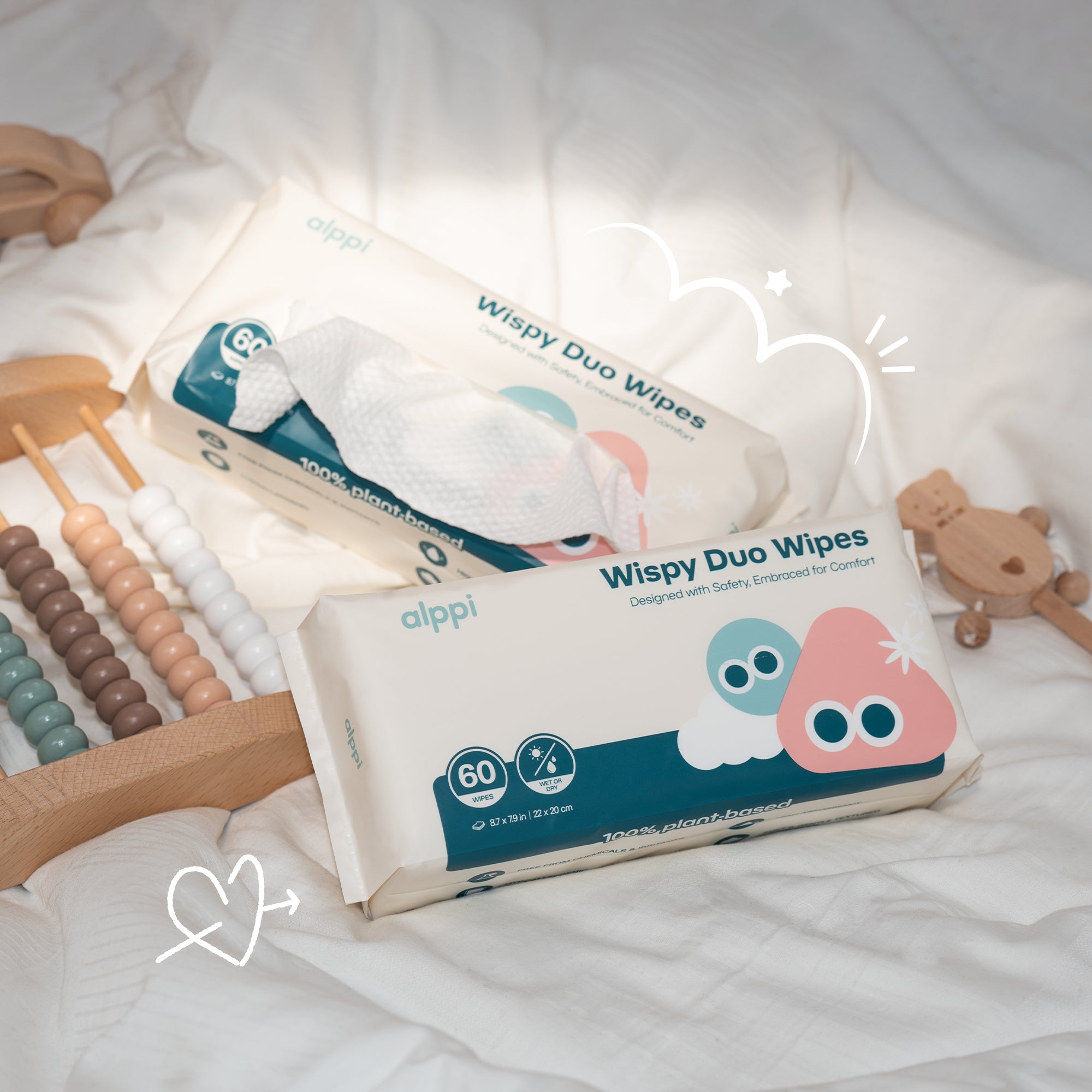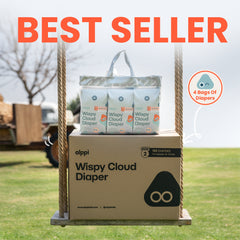Newborn essentials can feel overwhelming when you’re preparing for your baby’s arrival, especially if you’re a first-time parent. Between diapers, feeding gear, and sleep must-haves, it’s easy to wonder what’s truly necessary and what can wait.
This guide breaks down the real newborn essentials that make daily care easier, safer, and more comfortable for both you and your baby.
From diaper changes to bedtime routines, we’ll cover the must-have items that simplify those first few weeks—so you can focus less on the checklist and more on enjoying those precious newborn moments.
Keep your little one dry and comfortable from day one with our newborn diapers—gentle, chlorine‑free, and perfectly sized for your baby’s first weeks.
Baby Care Essentials

Taking care of a newborn means keeping them clean, comfy, and healthy. You’ll want solid supplies for diapering, gentle bath products, and a few health and skincare basics you’ll reach for every day.
Diapers, Wipes, and Changing Supplies
Diapers disappear fast those first weeks. Have both newborn and size 1 handy. Disposable diapers are easy, but some parents go for cloth to cut down on waste (if you don’t mind the laundry). Set up a changing pad or table somewhere safe and stable.
Stick with fragrance‑free wipes or soft cloths and warm water for cleaning. Pat your baby dry before using diaper cream to help avoid rashes.
A diaper pail with a tight lid keeps smells in check. Store everything in a small changing station or caddy so you’re not scrambling mid-change.
|
Item |
Purpose |
|
Diapers |
Absorb waste and keep baby dry |
|
Wipes |
Clean skin gently |
|
Diaper cream |
Protects against rashes |
|
Changing pad |
Provides a clean surface |
|
Diaper pail |
Contains odors |
Bath Time Basics
Keep newborn baths quick and gentle. Use lukewarm water with a mild baby soap or shampoo for sensitive skin. Support your baby’s head and neck with one hand, wash with the other.
Have washcloths and soft towels ready. A hooded towel keeps your baby warm after the bath.
Don’t worry about daily baths—two or three times a week is enough. For in-between days, just wipe the face, neck, and diaper area with a damp cloth. Always check the water with your wrist before putting your baby in.
Skincare and Health Must‑Haves
Baby skin is super sensitive, so stick to mild, unscented stuff. A little baby lotion helps if they get dry. Have diaper rash cream on hand for redness.
Trim nails with baby nail clippers or a soft file so they don’t scratch themselves. It’s smart to keep a small first-aid kit: digital thermometer, nasal aspirator, saline spray for stuffy noses.
Stash these supplies together so you can grab them fast. Always read directions, and if you’re unsure about a new product, check with your pediatrician first.
Feeding Essentials

Feeding a newborn takes some planning and the right gear. You’ll want safe, clean equipment for prepping milk, feeding, and cleaning up—so your baby stays healthy and you stay sane.
Breastfeeding and Pumping Gear
If you’re breastfeeding, a few things can make life easier. A breast pump lets you express milk for when you’re away or just need a break. Look for one that’s easy to clean and adjust.
Use milk storage bags or containers, and always label with the date before you stash them in the fridge or freezer. Nursing pads catch leaks and save your clothes, while a nursing pillow supports your arms and helps with positioning.
A nursing cover offers privacy if you want it, and lanolin cream can help soothe sore nipples. Keep your essentials in a basket or caddy for stress-free feedings.
Bottle‑Feeding Supplies
For bottle-feeding, grab bottles and nipples that suit your baby’s age and feeding speed. Start with 4-ounce bottles for newborns, then size up later. Silicone nipples with slow-flow holes help prevent gas and choking.
If you’re formula-feeding, pick one your pediatrician recommends. Mix it as directed and toss any leftover formula after each feeding.
A bottle warmer heats milk evenly, and a sterilizer keeps bottles, nipples, and pump parts clean. Use a drying rack so everything can air-dry.
|
Item |
Purpose |
Tip |
|
Bottles |
Hold milk or formula |
Start with 4–6 bottles |
|
Nipples |
Control milk flow |
Replace every 2–3 months |
|
Warmer |
Heats milk evenly |
Avoid overheating |
Burp Cloths and Cleaning Tools
You’ll want plenty of burp cloths and drool bibs for spit-up and dribbles. Sling a burp cloth over your shoulder during and after feedings. Cotton ones are easiest to wash and reuse.
Keep bibs close for feeding sessions. Wash them often to keep things fresh.
For cleaning, use a bottle brush, mild soap, and warm water. Sterilize with a steam bag or sterilizer. Store clean gear in a dedicated spot so it’s always ready.
Make nights easier with our newborn overnight diapers—extra‑absorbent protection that keeps your baby sleeping soundly until morning.
Sleep and Comfort Essentials
Your baby needs a safe, calm place to sleep. The right setup and gear help your newborn rest soundly and keep you feeling a bit more confident, too.
Safe Sleep Setup
Set up a sleep space that’s both safe and cozy. Use a crib, bassinet, or portable crib with a snug, firm, flat mattress. Always use a fitted sheet made for your mattress size. Skip loose bedding, pillows, or stuffed toys—those can be risky.
Put your baby on their back for every nap and at night. Keep the room at a comfy temperature and dress your baby so they don’t overheat.
A basic setup could look like:
|
Item |
Purpose |
|
Crib or Bassinet |
Main sleep space |
|
Firm Mattress |
Supports safe posture |
|
Fitted Sheet |
Keeps surface smooth |
|
Portable Crib |
For travel or small spaces |
A baby monitor lets you check in without waking your baby. Some parents like a night light for those middle-of-the-night feeds—totally optional, but handy.
Swaddles, Blankets, and Sleepwear
Swaddling can calm newborns by mimicking the womb. Use a swaddle blanket or receiving blanket made of breathable cotton or muslin. Wrap snugly around the body but leave room at the hips and legs.
Once your baby starts rolling, switch to a sleep sack or wearable blanket—these keep them warm without loose fabric. Choose lightweight sleepers or pajamas that fit well for overnight comfort.
Keep a few baby blankets around for layering in cooler months, but don’t put them in the crib. Use them for supervised naps or tummy time instead.
Soothing and Monitoring Items
A few gentle tools can make bedtime easier. A pacifier might help your baby self-soothe and could even lower SIDS risk. Go for one-piece pacifiers that meet safety standards.
A mobile above the crib can give your baby something to look at—just make sure it’s out of reach and secure. Soft white noise or a night light might help signal it’s time to sleep.
Use a baby monitor to listen for sounds or check in, especially if your baby’s in another room. Some monitors have video or breathing sensors, but even a basic audio one does the job.
Complete your diapering routine with our baby wipes—soft, safe, and made for sensitive newborn skin.
Conclusion: Newborn Essentials
Preparing for your baby’s arrival doesn’t have to be stressful. With the right newborn essentials, you’ll have everything you need to keep your little one safe, comfortable, and cared for in those first few weeks.
Focus on quality, comfort, and simplicity—items that make daily routines easier and help you feel confident as a new parent. Every baby is different, so adjust your checklist as you learn what works best for your family.
Want to understand your baby’s sleep patterns better? Read our guide on newborn wake windows to help create a calm, predictable routine from the start.
Frequently Asked Questions
Getting ready for a newborn means figuring out what gear and routines really matter. Focus on essentials that keep your baby comfy, healthy, and growing—while also making those early weeks a bit more manageable for you.
What are must-haves for newborns?
You’ll need safe sleep gear, feeding supplies, diapers, clothes, and basic health tools. A firm crib mattress, fitted sheet, and wearable blanket create a safe sleep space. Keep diapers, wipes, rash cream, soft bodysuits, and a thermometer on hand.
What are the 5 basic needs of a newborn?
Newborns need food, sleep, warmth, hygiene, and love. Regular feeding, safe sleep, and gentle care meet these needs. Holding and responding to your baby builds trust and emotional security.
What is the 5‑5‑5 rule for newborns?
The 5‑5‑5 rule supports postpartum recovery and bonding. Spend five days in bed, five on the bed, and five near the bed. It encourages rest, healing, and closeness with your baby.
What are the 10 essential newborn cares?
Essential care includes drying, skin‑to‑skin contact, delayed cord clamping, early breastfeeding, warmth, clean cord care, eye care, immunization, safe sleep, and hygiene. These steps prevent infection and support healthy growth. Starting early gives your baby a strong, nurturing beginning.
